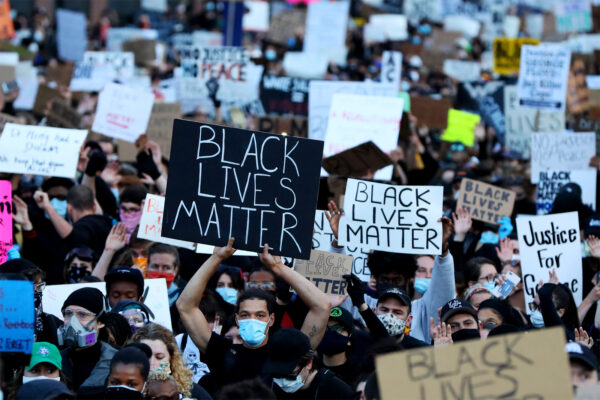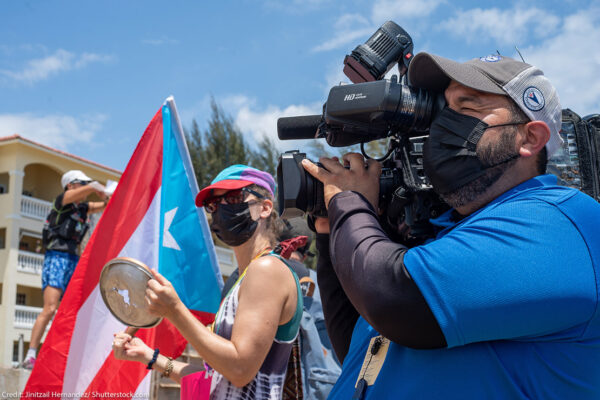ACLU, DeRay Mckesson Urge Supreme Court to Defend First Amendment Right to Protest
A lower court ruling, if left standing, would gut civil rights-era speech protections.
WASHINGTON — The American Civil Liberties Union today asked the U.S. Supreme Court to overturn a lower court ruling that, if left standing, would dismantle civil rights-era Supreme Court precedent safeguarding the First Amendment right to protest. The petition for certiorari was filed on behalf of DeRay Mckesson, a prominent civil rights activist and Black Lives Matter movement organizer.
The Fifth Circuit Court of Appeals in June ruled that a Baton Rouge police officer’s lawsuit against Mckesson could proceed. The lawsuit, Doe v. Mckesson, seeks damages from Mckesson for injuries the officer sustained at a protest in Baton Rouge, Louisiana, on July 9, 2016. The protest was held to celebrate the life of Alton Sterling — a Black resident who was shot and killed by two on-duty police officers — and demand accountability and transformative change. Mckesson joined the protest and encouraged others to do so as well.
The officer alleges that, during the protest, an unidentified protester threw a rock, which resulted in the officer’s injuries. Mckesson did not throw the rock or direct anyone to do so, nor does the officer allege he did. Instead, the officer’s lawsuit claims Mckesson is responsible for the injuries simply because he encouraged the protest. Under that theory, no one could organize a protest without fearing that they would be sued for any harm that ensues, regardless of whether they themselves played any part in the injuries.
The Supreme Court previously granted certiorari in this case, recognizing the significant First Amendment problems the officer’s claim could present, and directed the lower court to ask the Louisiana Supreme Court whether such a claim could proceed as a matter of state tort law, where the defendant had no real nexus to the injury other than being part of a protest. After the Louisiana Supreme Court responded in the affirmative, the Fifth Circuit again erroneously held that the officer’s claim does not violate the First Amendment.
“The goal of lawsuits like these is to prevent people from showing up at a protest out of the fear that they might be held responsible if anything happens,” said Mckesson. “If this precedent lasts, it could make organizers all across the country responsible for all types of things they have no control over, such as random people coming into a protest and causing problems. We can’t let that happen.”
The Supreme Court in 1982 held that while the Constitution does not protect violence, it does limit the government’s ability to place responsibility for the violence of one person onto other peaceful protesters. That case, NAACP v. Claiborne Hardware Co., has been cited repeatedly to ensure robust speech protections, including to dismiss a lawsuit against then-candidate Donald Trump for violent acts committed at a campaign rally and to challenge efforts to stifle Keystone XL pipeline protests.
“The Supreme Court has long recognized that peaceful protesters cannot be held liable for the unintended, unlawful actions of others,” said ACLU National Legal Director David Cole. “If the law had allowed anyone to sue leaders of social justice movements over the violent actions of others, there would have been no Civil Rights Movement. The lower court’s ruling is a threat to the First Amendment rights of millions of Americans.”
The ACLU warns that as long as the Fifth Circuit’s ruling remains in effect, Americans will be deterred from exercising their First Amendment rights out of fear of inviting — and having to fight — lawsuits that the Supreme Court has already held unconstitutional.
“Unless the Supreme Court reverses, these kinds of suits will become fearsome and illegitimate weapons wielded to silence people who have important, but uncomfortable things to tell their fellow citizens,” said David Goldberg, counsel of record on Mckesson’s legal team and attorney with Donahue & Goldberg, LLP.



